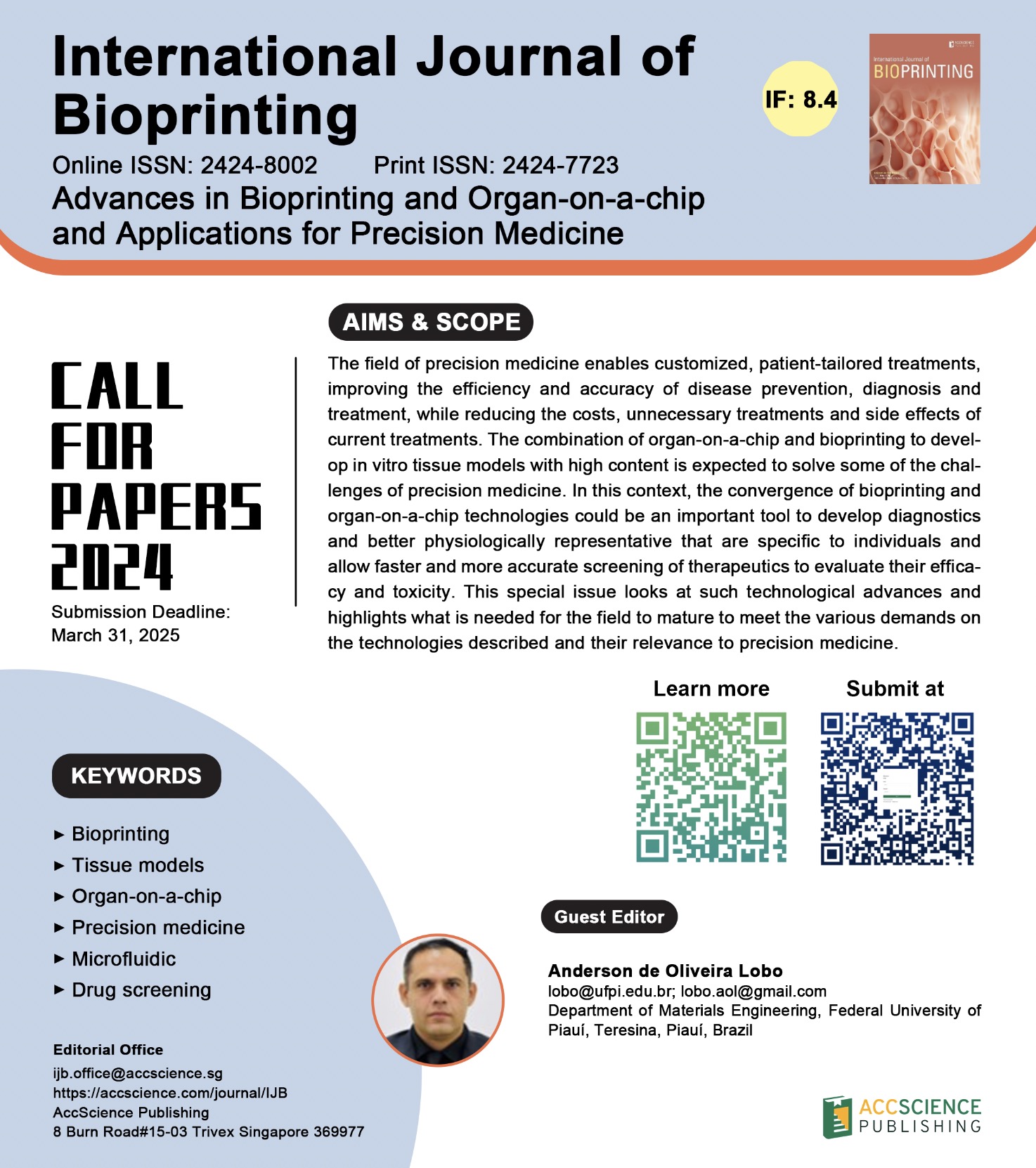
The field of precision medicine enables customized, patient-tailored treatments, improving the efficiency and accuracy of disease prevention, diagnosis and treatment, while reducing the costs, unnecessary treatments and side effects of current treatments. The combination of organ-on-a-chip and bioprinting to develop in vitro tissue models with high content is expected to solve some of the challenges of precision medicine. In this context, the convergence of bioprinting and organ-on-a-chip technologies could be an important tool to develop diagnostics and better physiologically representative that are specific to individuals and allow faster and more accurate screening of therapeutics to evaluate their efficacy and toxicity. This special issue looks at such technological advances and highlights what is needed for the field to mature to meet the various demands on the technologies described and their relevance to precision medicine.
Advancements in 3D bioprinting for nanoparticle evaluation: Techniques, models, and biological applications
Bioprinting of tumor immune microenvironment for immunotherapy
Bioprinting with superelastic and fatigue-resistant bioinks for large-sized tissue delivery
3D-printed zinc/magnesium-doped hydroxyapatite-polycaprolactone composite scaffolds for angiogenesis and osteogenesis
Design, fabrication, and biocompatibility of 3D-printed poly(LLA-ran-PDO-ran-GA)/poly (D-lactide) composite scaffolds for bone tissue engineering
3D-printed bioactive scaffolds: An emerging strategy for the regeneration of infectious bone defects
3D-printed microfluidic cell culture devices and hydrogel integration: Trends, challenges, and solutions
Replication of an intervertebral disc using an in-house bioprinter: A proof-of-concept study
Establishing a framework for the design and fabrication of patient-specific scaffolds targeting partial meniscal defects
Development of a high-precision 3D bioprinter system using a screw-based dispenser for microextrusion
Hierarchical 3D-printed scaffolds for osteochondral regeneration: From biomimetic design to functional integration


